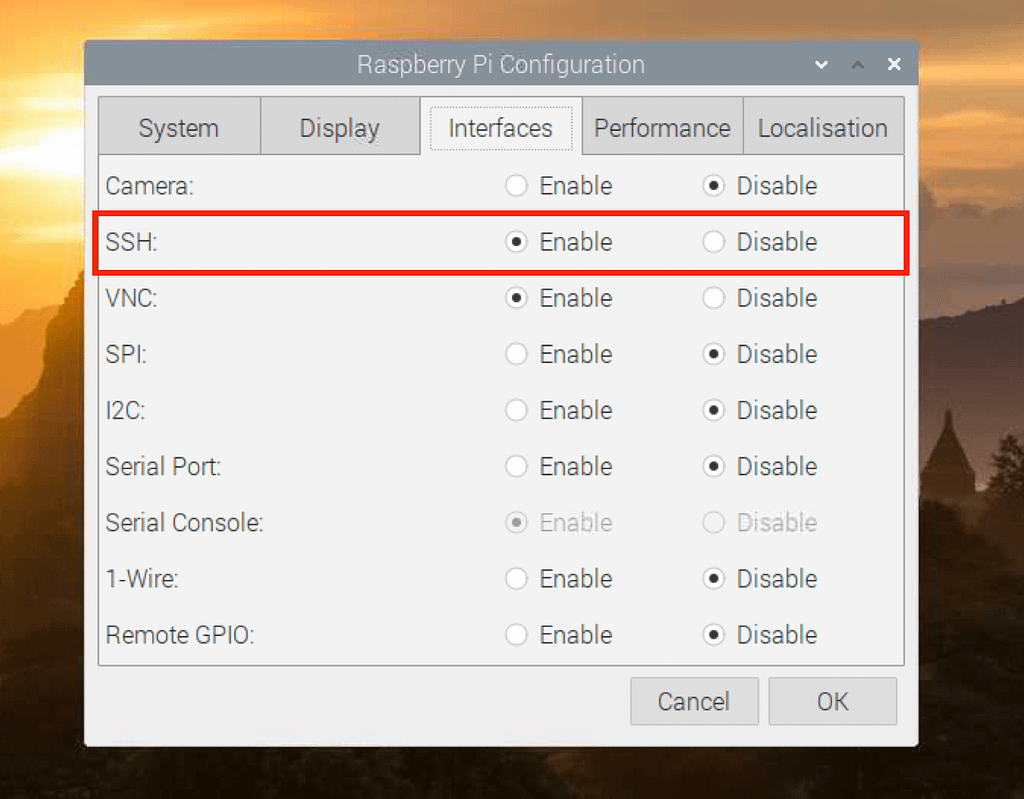Master RemoteIoT VPC SSH On Raspberry Pi: A Free Guide
In an age defined by interconnectedness, how can developers and tech enthusiasts establish secure and efficient IoT environments? RemoteIoT VPC SSH Raspberry Pi offers a robust answer. This solution provides a powerful framework for cloud-based IoT projects, promising enhanced security and scalability.
Whether you're a seasoned professional or just beginning your journey in the realm of IoT, this examination promises to enlighten you on RemoteIoT VPC SSH Raspberry Pi. We will delve into its functionalities, its diverse applications, and the step-by-step processes involved in its free implementation. Our goal is to equip you with a comprehensive understanding of this transformative technology and how it can revolutionize your IoT undertakings.
| Topic | RemoteIoT VPC SSH Raspberry Pi |
| Description | A cloud-based solution enabling secure communication between IoT devices and servers using Virtual Private Cloud (VPC) and Secure Shell (SSH) protocols, particularly integrated with Raspberry Pi for cost-effectiveness and accessibility. |
| Key Features |
|
| Primary Use Cases |
|
| Advantages |
|
| Disadvantages |
|
| Prerequisites |
|
| Alternatives |
|
| Future Trends |
|
| Resources | Official Raspberry Pi Website |
The technology underpinning RemoteIoT VPC SSH is designed to secure and streamline the way we interact with our connected devices. It uses Virtual Private Cloud (VPC) and Secure Shell (SSH) protocols, working in tandem to ensure data integrity and confidentiality. The integration of Raspberry Pi into this setup further democratizes the technology, making it both affordable and widely accessible to hobbyists and professionals alike.
- Open Sexy Video Download Stay Safe Informed Online
- Brooklyn Bedding Rv Mattress Your Road Trip Sleep Savior
RemoteIoT VPC SSH provides a means to remotely access and manage IoT devices without compromising the security of sensitive information. It is, in essence, a marriage of Raspberry Pi's inherent flexibility with the proven robustness of VPC SSH, allowing developers to create IoT systems that are not only scalable but also exceptionally reliable.
Raspberry Pi has earned its stripes as a favored platform for IoT endeavors. Its cost-effectiveness, adaptability, and ease of operation have made it a staple in the maker community and beyond. Equipped with substantial processing power and a vibrant community of developers, Raspberry Pi provides an ideal setting for implementing RemoteIoT VPC SSH solutions.
With its diminutive size and low power consumption, Raspberry Pi is a perfect fit for both personal and commercial IoT applications. Its compatibility with a multitude of operating systems and programming languages further solidifies its position as a versatile tool for developers aiming to create sophisticated IoT solutions.
RemoteIoT VPC SSH presents a suite of benefits that render it a prime choice for IoT projects. These include:
- Enhanced Security: By leveraging VPC SSH, the system provides a secure channel of communication between devices and servers. This, in turn, protects sensitive data from unauthorized access, ensuring privacy and data integrity.
- Scalability: The architecture of RemoteIoT VPC SSH is designed to handle increasing workloads, providing a flexible infrastructure that can be easily scaled to support growing IoT ecosystems. This is essential as the number of connected devices and the volume of data they generate continue to expand.
- Cost-Effectiveness: The use of Raspberry Pi, coupled with the availability of open-source tools, allows developers to implement IoT solutions without incurring substantial costs. This makes the technology more accessible, encouraging wider adoption and innovation.
- Flexibility: RemoteIoT VPC SSH is engineered to support a diverse array of applications, from simple home automation systems to complex industrial monitoring setups. This adaptability underscores its versatility and broad applicability in today's interconnected world.
Step-by-Step Guide
Setting up RemoteIoT VPC SSH on Raspberry Pi involves several key steps. Careful adherence to this guide will ensure a smooth and successful installation process:
- Prepare Your Raspberry Pi: Start by installing the most recent version of Raspberry Pi OS onto your device. Ensure that the Raspberry Pi is connected to the internet, which is critical for software updates and secure communication.
- Enable SSH: Utilize the Raspberry Pi Configuration tool to activate SSH. This can be done within the Interfaces tab. SSH (Secure Shell) is essential for remote access and management of your device.
- Set Up VPC: Create a Virtual Private Cloud (VPC) within your preferred cloud provider, such as AWS or Google Cloud. Configure the necessary security groups to control network traffic and ensure the security of your IoT environment.
- Connect Raspberry Pi to VPC: Use SSH to establish a secure connection, effectively linking your Raspberry Pi to the VPC network. This allows the Raspberry Pi to communicate within your private cloud environment.
- Test the Connection: After establishing the connection, verify that your Raspberry Pi can securely communicate with the VPC network. This test confirms the proper configuration and functionality of your setup.
RemoteIoT VPC SSH can be obtained at no cost through multiple reliable sources, including:
- GitHub: A multitude of developers share open-source projects related to RemoteIoT VPC SSH on GitHub. This grants access to the software and related documentation at no charge.
- Official Websites: The official websites of cloud providers and IoT solution providers often feature free trials and downloadable resources, providing access to essential tools for your IoT projects.
- Community Forums: Engage with active developer communities. Within these communities, you can find helpful tools and resources to aid in the implementation of RemoteIoT VPC SSH.
Best Practices for Security
Securing your RemoteIoT VPC SSH setup is crucial for safeguarding your IoT devices and the data they generate. Here are essential best practices to adhere to:
- Use Strong Passwords: Employ complex passwords or key-based authentication for all SSH credentials. This is a fundamental step in fortifying your system against unauthorized access.
- Regular Updates: Ensure your Raspberry Pi OS and all related software are consistently updated. This is essential for patching vulnerabilities and maintaining security.
- Firewall Configuration: Configure firewalls to tightly regulate access to your VPC network. This includes restricting traffic to only authorized sources, blocking any unauthorized attempts to interact with your network.
- Monitor Logs: Regularly scrutinize system logs to detect and respond to suspicious activities. This proactive approach is essential for early identification and mitigation of potential security threats.
Troubleshooting Tips
Issues can arise during the setup phase; however, they are often manageable with the right strategies:
- SSH Connection Issues: Double-check that SSH is enabled, and confirm the IP address and port settings. These are fundamental for establishing a secure connection.
- VPC Configuration Errors: Review your security groups and network settings within your VPC. Ensuring these settings are correctly configured is critical for the proper operation of your system.
- Software Compatibility: Always confirm that all software versions are compatible with your Raspberry Pi model to avoid conflicts.
RemoteIoT VPC SSH is highly adaptable and finds applications across a wide range of industries and sectors. Here are some prominent applications:
- Home Automation: Remotely control and manage smart home devices, thereby increasing convenience and security.
- Industrial Monitoring: Monitor and manage industrial equipment in real-time, enabling proactive maintenance and optimization of operations.
- Agriculture: Employ IoT solutions for precision farming and environmental monitoring. These advanced techniques facilitate efficient resource management and increased yields.
- Healthcare: Utilize IoT devices for remote patient monitoring and comprehensive data analysis. This can revolutionize healthcare delivery and improve patient outcomes.
While RemoteIoT VPC SSH offers a range of advantages, it's crucial to evaluate it in comparison with other IoT solutions:
- MQTT: While a lightweight protocol and efficient for resource-constrained devices, MQTT lacks the robust security features of VPC SSH.
- Zigbee: Suited for low-power wireless communication, Zigbee might not scale as effectively as VPC SSH, especially in larger deployments.
- LoRaWAN: Designed for long-range communication, LoRaWAN necessitates additional infrastructure investments, which can be a factor in deployment costs.
The future of IoT is marked by significant advancements that will further reshape its capabilities. RemoteIoT VPC SSH is positioned to play a significant role in this evolution.
- 5G Integration: The advent of faster, more reliable connectivity will substantially enhance IoT capabilities, opening up possibilities for complex applications.
- Artificial Intelligence: AI-driven IoT systems are set to improve decision-making and automation, further enhancing efficiency and performance.
- Edge Computing: The move to process data closer to the source will lead to a reduction in latency and greater operational efficiency, thus enhancing the overall user experience.


Detail Author:
- Name : Bessie Konopelski II
- Username : econsidine
- Email : green.ronny@hotmail.com
- Birthdate : 1976-03-10
- Address : 13697 Will Keys Apt. 417 Haileehaven, IA 98348
- Phone : +18473157493
- Company : Pfannerstill-Hartmann
- Job : Custom Tailor
- Bio : Eos libero quas velit illo a consectetur. Alias blanditiis et expedita repellat. Dolorem aut et ea iusto sunt.
Socials
twitter:
- url : https://twitter.com/borerr
- username : borerr
- bio : Maiores sint omnis est. Doloribus ducimus quod blanditiis id atque rerum dolorem.
- followers : 1245
- following : 107
tiktok:
- url : https://tiktok.com/@borerr
- username : borerr
- bio : Adipisci omnis ut occaecati libero iure magni ut.
- followers : 3485
- following : 1668
facebook:
- url : https://facebook.com/rebekah_official
- username : rebekah_official
- bio : Delectus aspernatur repudiandae natus aspernatur cum porro.
- followers : 3164
- following : 2595
instagram:
- url : https://instagram.com/rebekahborer
- username : rebekahborer
- bio : Laudantium eveniet aperiam perferendis accusantium. Ut at laborum reiciendis occaecati in nihil.
- followers : 6972
- following : 2206
linkedin:
- url : https://linkedin.com/in/rebekah_id
- username : rebekah_id
- bio : Iste qui odio itaque aperiam dolorem reiciendis.
- followers : 3145
- following : 275